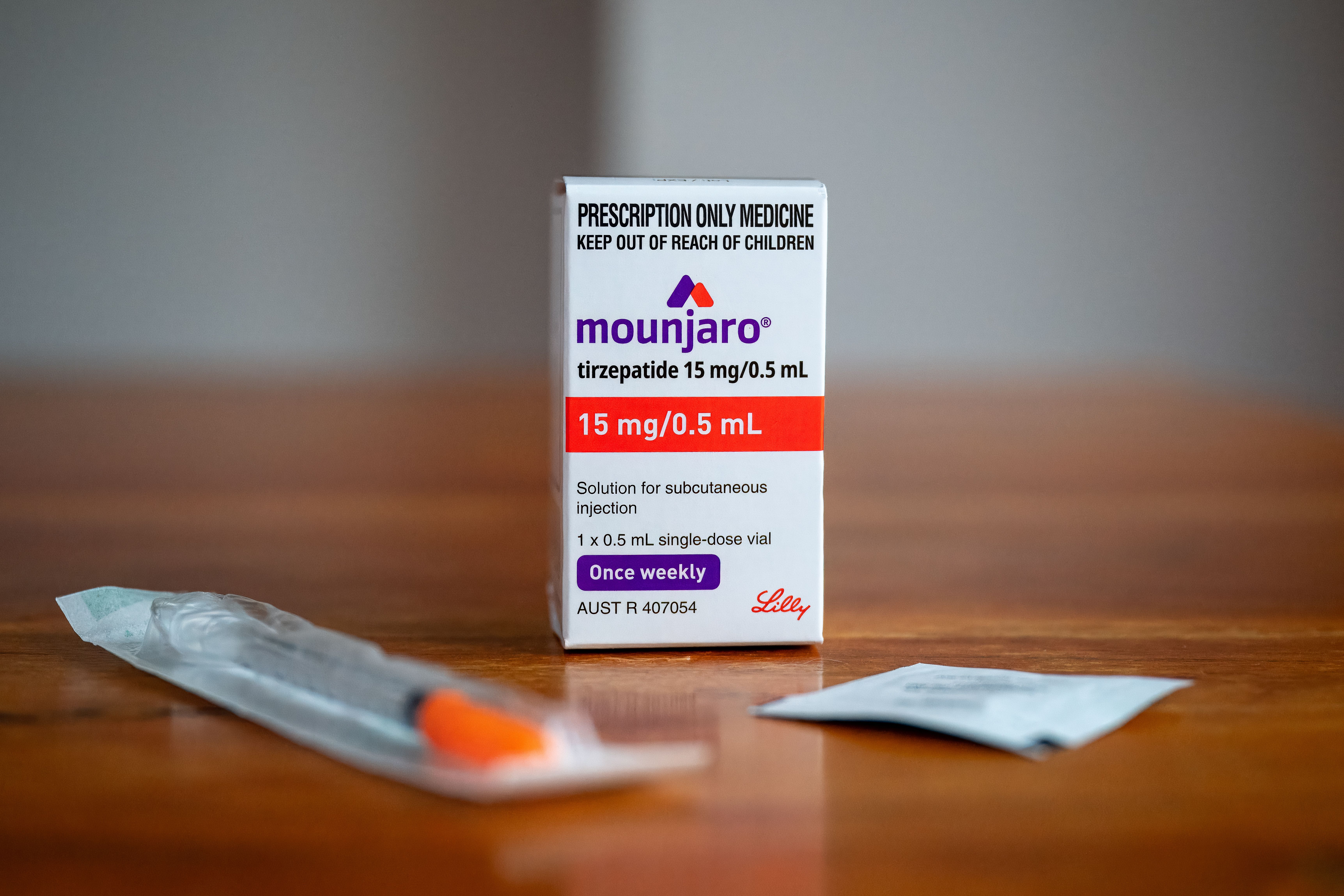
- Center on Health Equity & Access
- Clinical
- Health Care Cost
- Health Care Delivery
- Insurance
- Policy
- Technology
- Value-Based Care
How Tirzepatide Benefits Patients With Obesity-Related HFpEF
A SUMMIT trial analysis showed how tirzepatide improves cardiovascular and kidney health in patients with obesity-related heart failure with preserved ejection fraction (HFpEF).
Tirzepatide is demonstrating new promise for patients with obesity-related heart failure with preserved ejection fraction (HFpEF).1
Presented at the American Heart Association (AHA) Scientific Sessions 2024, a secondary analysis of the SUMMIT trial shed light on the drug’s ability to address key underlying mechanisms of obesity-related HFpEF, including circulatory volume overload, systemic inflammation, and end-organ damage. These findings expand on overall SUMMIT trial results showing that tirzepatide reduced the combined risk of cardiovascular death or worsening HF by 38%, as well as improving health status and exercise capacity.2 This analysis offers new insights into how the long-acting glucagon-like peptide 1 (GLP-1) and glucose-dependent insulinotropic polypeptide (GIP) receptor agonist achieves these benefits and improves outcomes.1
Longer-term studies are needed to confirm the durability of these benefits. | Image credit: Cynthia – stock.adobe.com

Over half of patients with HF have a preserved ejection fraction, and nearly two-thirds of those patients have obesity. The SUMMIT trial included 731 patients with obesity-related HFpEF, with a median body mass index of 38 kg/m² and high rates of comorbidities such as hypertension, chronic kidney disease (CKD), and coronary artery disease. The SUMMIT trial was funded by Eli Lilly and Company, the supplier of tirzepatide under brand names Mounjaro and Zepbound.
Patients were randomized to tirzepatide or placebo for 52 weeks. At the end of the trial, tirzepatide was associated with significant improvements in several key measures:
- Blood pressure reduction: A decrease in systolic blood pressure by an average of 5 mm Hg (P < .001).
- Inflammation reduction: A 37.2% reduction in C-reactive protein (CRP), a marker of systemic inflammation (P < .001).
- Volume overload mitigation: Reductions in both plasma volume and blood volume, with estimated blood volume decreasing by 0.58 liters (P < .001).
The GLP-1/GIP receptor agonist also improved kidney function, with an estimated 2.9 mL/min/1.73 m2 increase in estimated glomerular filtration rate (eGFR) by the end of the study compared with placebo (P = .004). Patients also experienced a 25% reduction in the urine albumin-creatinine ratio at 24 weeks (P < .001), reflecting a decline in albuminuria and kidney stress, though this number dropped to a 15% reduction at 52 weeks (P = .051).
“Collectively, these observations suggest that novel treatments that reduce circulatory volume–pressure overload (or its determinants), improve kidney function, reduce inflammation and mitigate cardiac injury may improve clinical status in people with obesity-related HFpEF,” the research authors wrote.
Linking Mechanisms to Clinical Improvements
The reductions in blood volume, inflammation, and markers of cardiac and kidney injury were linked to better clinical outcomes for patients receiving tirzepatide. Improvements in volume overload correlated with enhanced scores on the Kansas City Cardiomyopathy Questionnaire (KCCQ), which measures symptoms and quality of life. These patients also saw an average improvement of 18.3 meters in the 6-minute walk distance test, highlighting better exercise capacity after use of the GLP-1/GIP receptor agonist.
According to the researchers, these improvements in circulatory volume expansion may stem from tirzepatide’s ability to reduce adipocyte-released factors like leptin and aldosterone, which promote sodium retention and contribute to volume overload.
“Volume expansion in obesity-related HFpEF exacerbates elevation in cardiac filling pressures that develop due to impairments in left ventricular distensibility, and thus, reducing circulating volume may decrease cardiac filling pressures,” they said. “This finding could partly explain the direct correlation observed between reductions in BV [blood volume] and improvements in KCCQ-CSS score and exercise capacity.”
The trial also explored the relationship between inflammation and myocardial injury. Tirzepatide reduced levels of troponin T, a biomarker of cardiac injury, by 10.4% after 52 weeks (P = .003). The decline in troponin T was correlated with lower CRP levels, suggesting that the drug’s anti-inflammatory effects may contribute to reducing cardiac stress.
While tirzepatide’s effects on heart and kidney health are promising, longer-term studies are needed to confirm the durability of these benefits. Additionally, the study authors noted that more research is needed to understand how weight loss, a key effect of tirzepatide, contributes to the observed improvements in volume overload and inflammation.
References
- Borlaug BA, Zile MR, Kramer CM, et al. Effects of tirzepatide on circulatory overload and end-organ damage in heart failure with preserved ejection fraction and obesity: a secondary analysis of the SUMMIT trial. Nat Med. Published online November 17, 2024. doi:10.1038/s41591-024-03374-z
- Tirzepatide lowered risk of worsening heart failure and CVD death for obese adults. News release. American Heart Association. November 16, 2024. Accessed December 4, 2024. https://newsroom.heart.org/news/tirzepatide-lowered-risk-of-worsening-heart-failure-and-cvd-death-for-obese-adults
What It Takes to Improve Guideline-Based Heart Failure Care With Ty J. Gluckman, MD
August 5th 2025Explore innovative strategies to enhance heart failure treatment through guideline-directed medical therapy, remote monitoring, and artificial intelligence–driven solutions for better patient outcomes.
Listen
Personalized Care Key as Tirzepatide Use Expands Rapidly
April 15th 2025Using commercial insurance claims data and the US launch of tirzepatide as their dividing point, John Ostrominski, MD, Harvard Medical School, and his team studied trends in the use of both glucose-lowering and weight-lowering medications, comparing outcomes between adults with and without type 2 diabetes.
Listen
What It Takes to Improve Guideline-Based Heart Failure Care With Ty J. Gluckman, MD
August 5th 2025Explore innovative strategies to enhance heart failure treatment through guideline-directed medical therapy, remote monitoring, and artificial intelligence–driven solutions for better patient outcomes.
Listen
Personalized Care Key as Tirzepatide Use Expands Rapidly
April 15th 2025Using commercial insurance claims data and the US launch of tirzepatide as their dividing point, John Ostrominski, MD, Harvard Medical School, and his team studied trends in the use of both glucose-lowering and weight-lowering medications, comparing outcomes between adults with and without type 2 diabetes.
Listen
2 Commerce Drive
Cranbury, NJ 08512
AJMC®
All rights reserved.